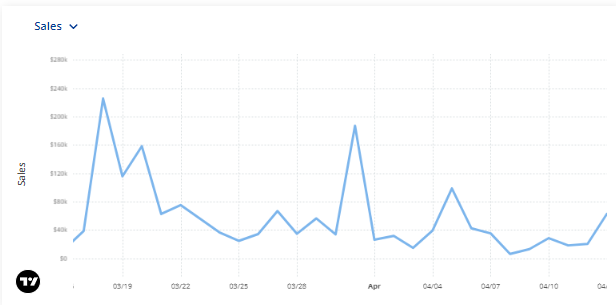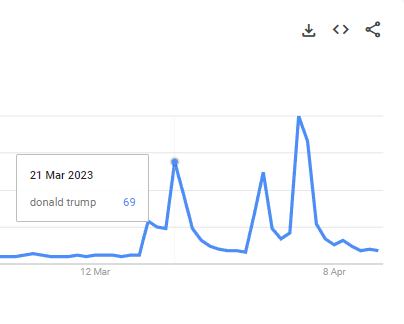Non-fungible tokens’ (NFT) ability to bring attention and funding has seemingly become a main selling point for the new technology.
By connecting fans with celebrities and collectors with prizes, in just a few years, NFTs have proven to be a lightning rod for raising funds. When politicians begin to harness that power, it becomes clear that politics will be a trojan horse for NFT mass adoption.
Nobody would call Donald Trump a technical wizard. But even so, he managed to find himself at the cutting edge of technology, using NFTs to do what he does best; draw attention and raise money.
In December, the former president released an NFT collection called Trump Digital Trading Cards, featuring 45,000 collectibles of himself in different outfits at a price of US$99 each. The collection sold out within a few hours and, like Trump himself, is part of history in the making.
Trump’s newest financial disclosers show that he raked in somewhere between US$100,000 to US$1 million from the sale, and his money-making may not be over yet.
Data on CryptoSlam shows that the collection has traded for nearly US$20 million on secondary marketplaces, with up to 10% of those sales going back to the project (and possibly Trump directly) as royalties.
Considering that sales seem to increase in correlation with media coverage, Trump likely has a few more substantial paydays ahead.


It’s unclear if Trump’s NFTs were intended for political fundraising or if they were purely collectibles. The line between the two is blurry.
During the initial sale, random buyers won prize NFTs that promise a Zoom call with Trump, and tickets to a Gala Dinner at Mara Lago, among a dozen unique prize offerings. One could assume that politics will be the main topic at these events, but we’ll need regulatory bodies to determine if the primary NFT sale was kosher or if it violated any campaign finance laws.
Other political figures have dabbled in NFTs, like Andrew Yang with his GoldenDAO and Blake Masters’s Zero to One book cover. While neither managed to bring in sales and attention like Trump, these ventures into NFTs, along with a recent FEC ruling, are the writing on the wall, telling us that a new era for politicians raising funds is upon us.
if you think NFTs will not affect politics, you are wrong. it is just a new tool for bringing people together, it can be used for good or bad.😔🙏
— beeple (@beeple) December 13, 2021
On their own, both NFTs and politics are polarizing, but combined, you may get an outcome greater than the sum of its parts. NFTs would give politicians direct access to their constituents in the form of online communities, and regulators would have perfect transparency into financing through the public ledger we call the blockchain. NFTs, on the other hand, would benefit from being legitimized by some of the most powerful people in the world.
As the 2024 US election cycle ramps up, we’ll be watching to see if political NFT offerings rise along with it. If today’s announcement of Trump’s Series 2 NFT Trading Cards is any indication of what’s to come, it’s going to be a spicy couple of years in NFTs.
A quick look at the Forkast 500 NFT Index shows the NFT market is up over 3% in the past seven days, driven by a successful NFTNYC event last week, along with Ethereum and Cardano both gaining in value over the same period.





